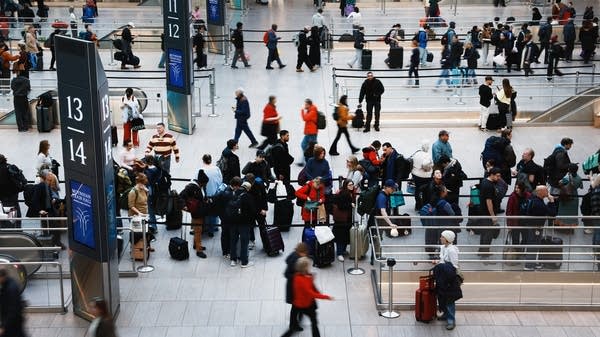Why people tip more in Delaware than they do in California, and what that says about wages
Data from payment processor Toast indicates tipped amounts vary widely by state. We look at what impact a no tax on tips policy would have on the tipping landscape.

People in different states tip different amounts at restaurants, according to new data out from the payment processing firm Toast.
The House and Senate have separately passed bills that would eliminate taxes on tips for some workers, which could further change the tipping landscape.
Tipping, at the level we do, is a very American thing.
“I'm Belgian, so you know, tipping is to me a very, very strange phenomenon. You know, why should I tip a taxi driver?” said Laurens Debo, a professor of business at Dartmouth.
Debo said it took him time to, um, appreciate the nuances of U.S. tipping conventions — even as those conventions changed.
“The pandemic made the frontline workers heroes,” he said.
So it made sense to tip your delivery person extra. But Debo said tipping has continued to proliferate, thanks to a potent combination of technology and peer pressure. Think: the tip screen on the coffee shop iPad.
“You know, if the device is turned and everybody behind you sees that you are the one that tips zero, you don't wanna do this, right?” Debo said.
But it turns out, what people enter on that screen varies based on where they live. The Toast data found that the most generous tippers are in Delaware: They offer more than 22% on average. The lowest tippers are in California at just over 17%.
But that’s not because his fellow Californians are stingy, said Uri Gneezy, an economist at UC San Diego.
“The $20 minimum wage for fast food workers is a good reason for that,” he said.
California is among a handful of states where businesses have to pay at least minimum wage, Gneezy said — even if workers get tips on top of that.
That higher base pay means a more stable income, he added. “I really prefer to live in a place in which there is a minimum wage that is respectful and you can live, you can pay your rent with it.”
But a no tax on tips policy could encourage employers to lower wages, warned Jeremy Bearer-Friend, a professor of tax law at George Washington University.
“If we start subsidizing tips relative to wages, then we're going to have a greater share of compensation in the form of tips,” he said.
The lowest earners, who don’t make enough to be taxed anyway, wouldn’t benefit from the policy change. And in the House’s version of the budget bill, the deduction wouldn’t apply to workers without a Social Security number or to workers married to someone without one.
“It's part of a pattern throughout this current administration to target our immigrant colleagues, immigrant family members for different treatment,” Bearer-Friend said.
And for workers who will get the tax break, it could be risky to rely more on tips. Laurens Debo of Dartmouth said that how much a tipped worker takes home at the end of the day doesn’t always match the effort they put in.
“There's lots of discrimination,” he said. “There is theft.”
Raising the minimum wage for tipped workers, he added, could be a fairer way to boost compensation.













